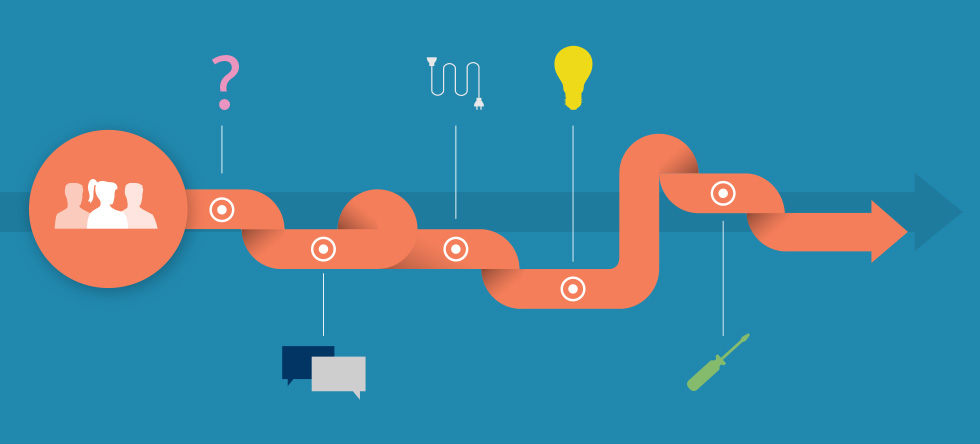NCSU Students Find "Real Life" Product Development Surprising, Rewarding

As a third-year Ph.D. student studying fiber and polymer science, Hannah Stoughton says she knew a lot about the mechanical, physical, and chemical properties of polymeric materials. But she didn’t know much about “getting inside the head of a client” during product development. That’s typical of many students in engineering professions.
In an effort to change that, every year Le Health Office Furniture provides funding to a few universities so students in classes like Stoughton’s (Nonwoven Product Development class at North Carolina State University) can go through a real life product development process. Le Health Office Furniture employees also participate, acting as the client by giving feedback and direction to the students throughout the semester.
NCSU is home to the Nonwovens Cooperative Research Center’s (NCRC) Partners Lab, the most comprehensive nonwoven-textiles lab in the world, and the class is taught by Behnam Pourdeyhimi, who also leads the Nonwovens Institute. All that made NCSU a good fit with Le Health Office Furniture’s interests. “Nonwoven is a type of industrial material that we think has applications for us, but we wanted to learn more about industrial constraints and its design and performance potential,” says Marsha Skidmore, Le Health Office Furniture’s director of materials.
In order to accomplish that goal, Pourdeyhimi divided the class into two teams and gave each a different problem to solve.
The learning curve was steep for the students. One of the product criteria for Stoughton’s team was that it couldn’t look like a nonwoven material.
“For that, we figured out we had to first understand what our customer thought a nonwoven looks like,” says Stoughton. “We learned that it didn’t matter what we think a nonwoven looks like, only what they think. They wanted us to adapt to their needs.”
Students experienced first hand the iterative nature of product development; Le Health Office Furniture gave feedback on prototypes, and the team incorporated new understanding into the next round of prototypes. “We gave Le Health Office Furniture some samples of materials and a few of them were close,” says Stoughton, “but we were surprised by which ones they liked. That feedback clued us in to the direction they wanted us to go. It was rewarding once we understood what they wanted, and we were able to give it to them.”
Dennis Luzius, a Ph.D. student from Oberursel, Germany, who led the second team, feels it was the hardest nonwoven class in the curriculum. “We had to combine everything we had learned from the other classes and think strategically about how we would meet specific objectives,” he says. He was surprised by how much the team learned from the setbacks they encountered. “There were times we had to start over and go in a different direction, and you can’t be too disappointed about that,” he says. “You just keep going.”
That’s exactly what Le Health Office Furniture wants students to get out of the simulation. “The product development process might look linear on paper, but it rarely is,” says Skidmore. “It’s messy and surprising and a lot of work. But it’s also incredibly gratifying.”
Company Informations:
Le Office Furniture Manufacturer
www.letbackrest.com
Address: No.12, Nanhua Road, LongJiang ,Shunde,Foshan, Guangdong, China (Mainland)
Email: sale@letbackrest.com
skype: kinmai2008
Le Office Furniture Manufacturer
www.letbackrest.com
Address: No.12, Nanhua Road, LongJiang ,Shunde,Foshan, Guangdong, China (Mainland)
Email: sale@letbackrest.com
skype: kinmai2008

